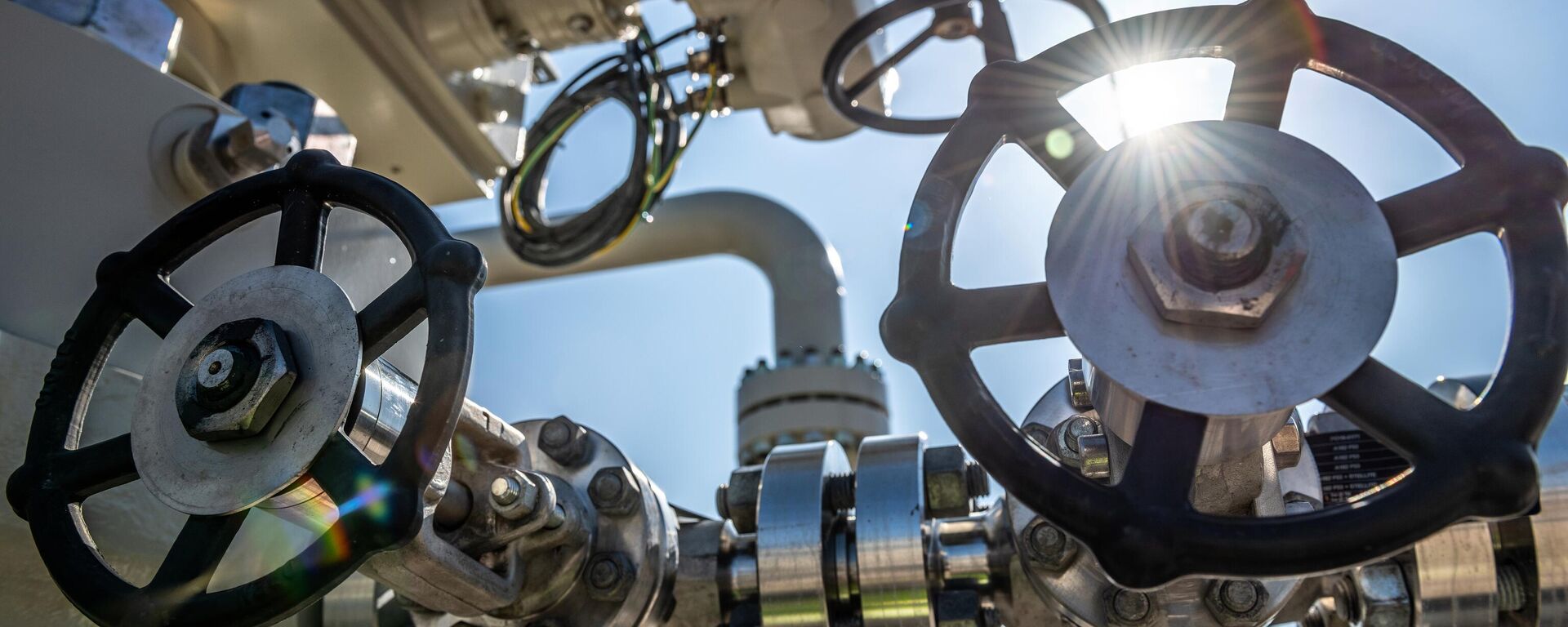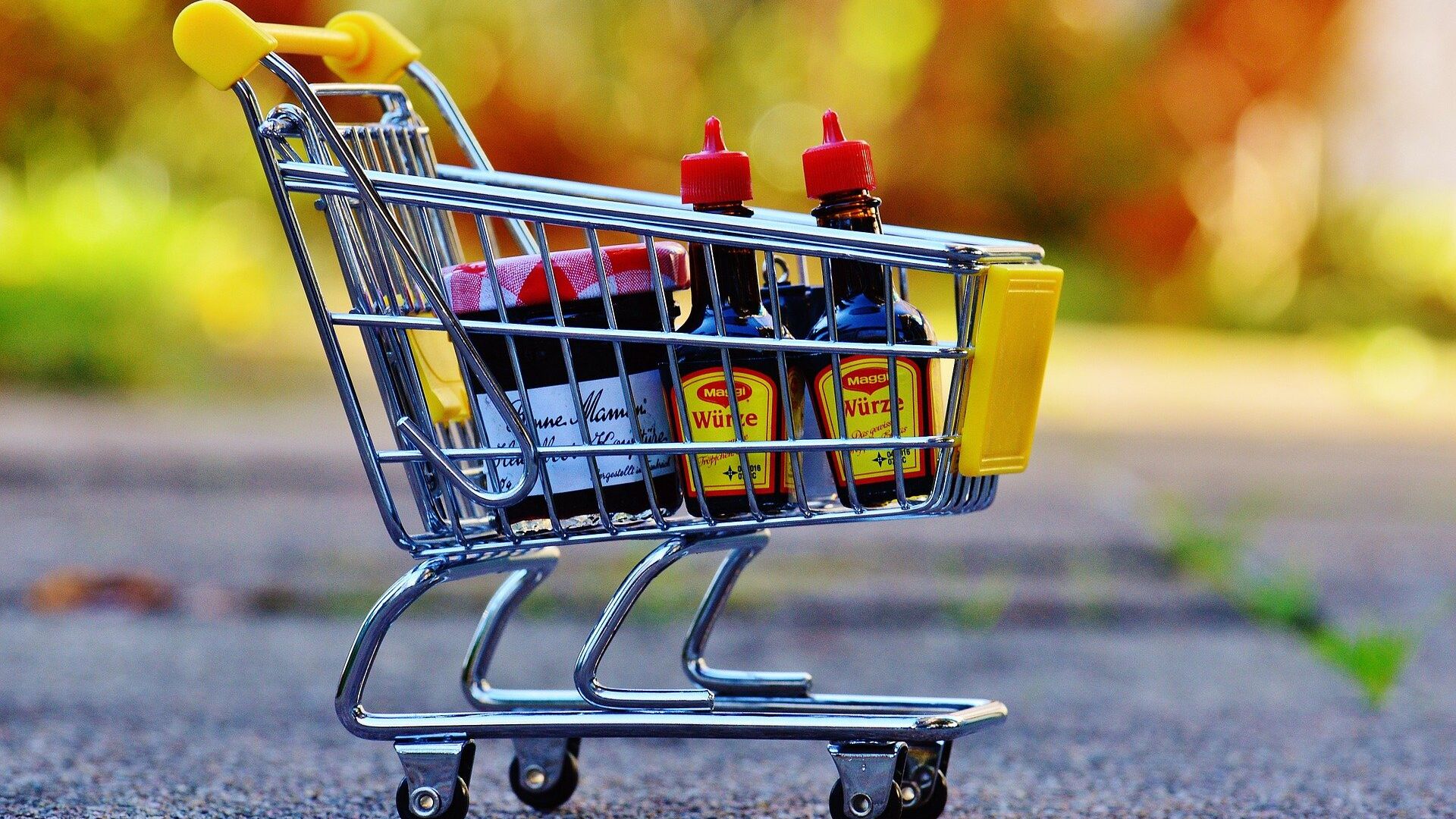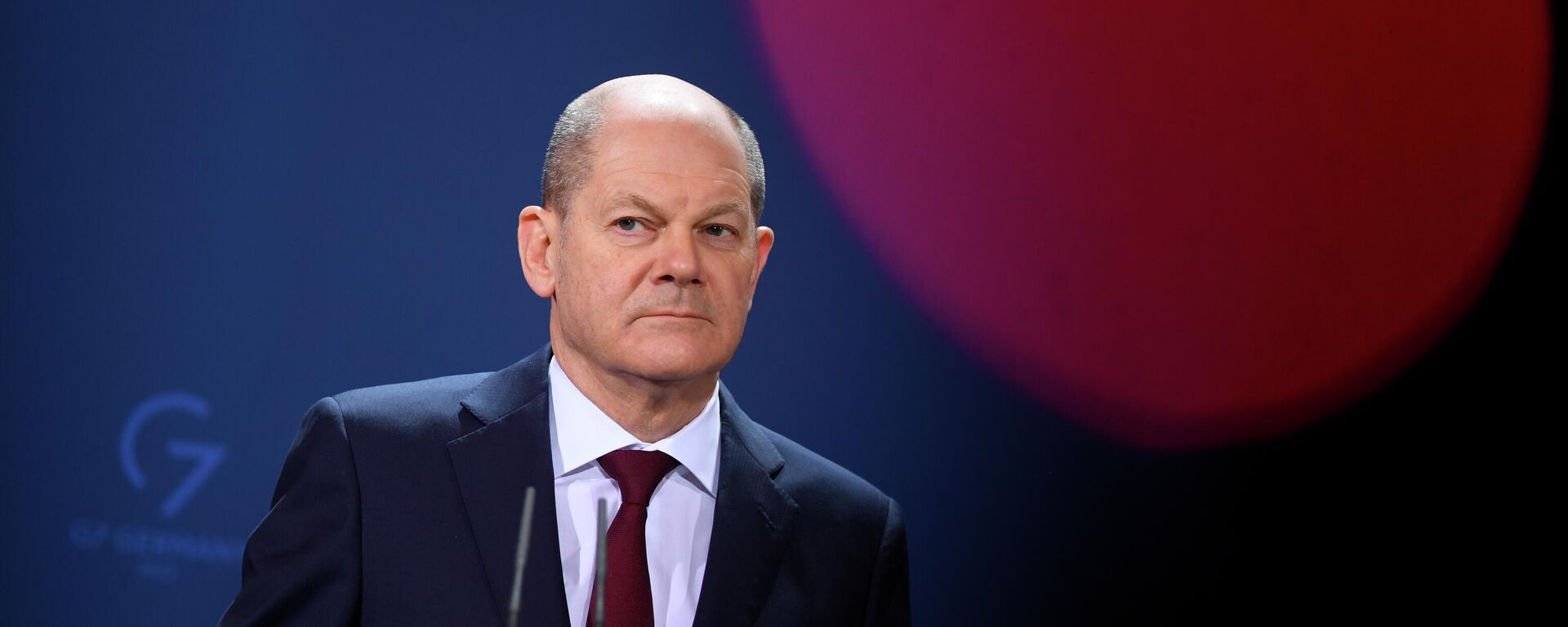https://sputnikglobe.com/20220814/german-shoppers-fume-over-the-shrinkflation-scam-as-downsized-goods-packages-hide-price-hikes-1099566591.html
German Shoppers Fume Over ‘Shrinkflation Scam’ as 'Downsized' Packages Hide Price Hikes
German Shoppers Fume Over ‘Shrinkflation Scam’ as 'Downsized' Packages Hide Price Hikes
Sputnik International
Inflation in Germany spiked to 8.5 percent in July, driven by a surge in food prices, and economists are predicting that inflationary pressures are likely to... 14.08.2022, Sputnik International
2022-08-14T05:30+0000
2022-08-14T05:30+0000
2022-08-14T08:46+0000
energy crisis in europe
germany
inflation
ukraine crisis
energy prices
https://cdn1.img.sputnikglobe.com/img/103614/42/1036144289_0:98:1920:1178_1920x0_80_0_0_27898f442df3cb73f2686e8a15fd9c55.jpg
German shoppers are increasingly riled by sneaky attempts by retailers to increase the cost of goods, or so-called ‘shrinkflation,’ according to consumer protection authorities cited by Bloomberg.Regional groups across the country say they are being inundated with complaints over the diminishing size of packages in which goods are being offered - either for the same price that they were originally sold, or at a slight discount which in no way fairly reflects the fall in size.About 100 such complaints have been registered by the Hamburg branch of the group in the past two weeks, which is three to five times above the norm, as shoppers increasingly realize they’re being duped.Referred to as “bluff packages”, the consumer protection authorities’ list cites 14 percent inflation for gummy bears, a 20 percent jump for potato crisps, and a 25 percent price rise for some margarines. According to the group, practically all products have been effected by the phenomenon which was last this widespread in the Seventies.Most of the big food manufacturers in today’s world of packaged consumables are resorting to such “downsizing”, the consumer protection groups have highlighted.Along with the energy crisis with which Europe has been grappling, food costs have become the biggest driver of German inflation, rising at a year-on-year pace of 14 percent in July. Overall, the inflation rate in Germany, measured as the year-on-year change in the consumer price index, stood at 7.5 percent in July 2022, piling more pressure on low-income households’ budgets.Germany’s statistics office has also indicated it is aware of the tactics being used: the cost of more than 300,000 goods and services are being tracked monthly along with the size and volume they are offered in.Against this backdrop, German retail sales plummeted in June - down 9.8 percent from the previous year - as consumers slashed spending on non-essential goods to deal with record inflation. An even steeper decline in sales has been registered in the case of non-food items such as furniture and household appliances or clothing and shoes.Economists predict that German inflation will peak at 9.1 percent this quarter. This comes as record eurozone inflation forced the European Central Bank (ECB) to raise rates by half a percentage point – its first rise in 11 years. For the overall euro area, economists say price growth accelerated to 8.7 percent in July.The dire predictions come as Germany, Europe’s leading economy, has been facing an energy crisis amid Brussels’ push to “phase out” or dramatically cut down on Russian oil, gas, and coal deliveries to “punish” Moscow for the crisis in Ukraine.Russian President Vladimir Putin has described the EU’s policies in response to Moscow’s special military operation in Ukraine as “suicidal”.Ordinary people in Germany have been hard hit by the self-inflicted energy price shocks, with a survey conducted by the Institute of New Social Answers last month revealing that one in six Germans have resorted to skipping meals thanks to rocketing food inflation.Authorities have been urging people to cut down on baths, wear warm sweaters to save on heating costs, and take other measures to deal with the energy crisis.Before the escalation of the security crisis in Ukraine earlier this year, Germany bought about 40 percent of its gas and a quarter of its oil from Russia. Accordingly, the European economic and industrial powerhouse has been especially badly hit after agreeing to Brussels’ directives to curtail its energy dependence on Russia.
https://sputnikglobe.com/20220729/oktoberfest-bavarian-beer-factories-on-the-chopping-block-amid-germanys-brewing-energy-crisis-1097935304.html
https://sputnikglobe.com/20220812/explosive-mood-germany-expects-winter-of-fury-amid-energy-crisis-and-soaring-inflation-1099510083.html
https://sputnikglobe.com/20220323/germanys-scholz-admits-to-blowback-from-anti-russian-sanctions-as-food-energy-prices-skyrocket-1094125196.html
germany
Sputnik International
feedback@sputniknews.com
+74956456601
MIA „Rosiya Segodnya“
2022
News
en_EN
Sputnik International
feedback@sputniknews.com
+74956456601
MIA „Rosiya Segodnya“
Sputnik International
feedback@sputniknews.com
+74956456601
MIA „Rosiya Segodnya“
germany, inflation, ukraine crisis, energy prices
germany, inflation, ukraine crisis, energy prices
German Shoppers Fume Over ‘Shrinkflation Scam’ as 'Downsized' Packages Hide Price Hikes
05:30 GMT 14.08.2022 (Updated: 08:46 GMT 14.08.2022) Inflation in Germany spiked to 8.5 percent in July, driven by a surge in food prices, and economists are predicting that inflationary pressures are likely to persist in other eurozone countries because of the relentless surge in natural gas costs, putting even greater pressure on the government to cushion households from the effects of the crisis.
German shoppers are increasingly riled by sneaky attempts by retailers to increase the cost of goods, or so-called ‘shrinkflation,’ according to
consumer protection authorities cited by Bloomberg.
Regional groups across the country say they are being inundated with complaints over the diminishing size of packages in which goods are being offered - either for the same price that they were originally sold, or at a slight discount which in no way fairly reflects the fall in size.
About 100 such complaints have been registered by the Hamburg branch of the group in the past two weeks, which is three to five times above the norm, as shoppers increasingly realize they’re being duped.
Referred to as “bluff packages”, the consumer protection authorities’ list
cites 14 percent inflation for gummy bears, a 20 percent jump for potato crisps, and a 25 percent price rise for some margarines. According to the group, practically all products have been effected by the phenomenon which was last this widespread in the Seventies.
Most of the big food manufacturers in today’s world of packaged consumables are resorting to such “downsizing”, the consumer protection groups have highlighted.
Along with the
energy crisis with which Europe has been grappling, food costs have become the biggest driver of German inflation, rising at a year-on-year pace of 14 percent in July. Overall, the inflation rate in Germany, measured as the year-on-year change in the consumer price index, stood at 7.5 percent in July 2022, piling more pressure on low-income households’ budgets.
“What we’re seeing now is really just the beginning. Between selling goods in old packaging and planning, producing and delivering new ones, preparations for covert price increases take about half a year. Experience suggests this shrinkflation scam will be heavily used in the fall, winter and early next year,” Armin Valet, a nutrition specialist at Verbraucherzentrale Hamburg consumer group, was cited as saying.

12 August 2022, 10:49 GMT
Germany’s statistics office has also indicated it is aware of the tactics being used: the cost of more than 300,000 goods and services are being tracked monthly along with the size and volume they are offered in.
Against this backdrop, German retail sales plummeted in June - down 9.8 percent from the previous year - as consumers slashed spending on non-essential goods to deal with
record inflation. An even steeper decline in sales has been registered in the case of non-food items such as furniture and household appliances or clothing and shoes.
Economists predict that German inflation will peak at 9.1 percent this quarter. This comes as record eurozone inflation forced the European Central Bank (ECB) to raise rates by half a percentage point – its first rise in 11 years. For the overall euro area, economists say price growth accelerated to 8.7 percent in July.
The dire predictions come as Germany, Europe’s leading economy, has been facing an energy crisis amid Brussels’ push to “phase out” or dramatically cut down on Russian oil, gas, and coal deliveries to “punish” Moscow for the crisis in Ukraine.
Russian President Vladimir Putin has described the EU’s
policies in response to Moscow’s special military operation in Ukraine as “suicidal”.
Ordinary people in Germany have been hard hit by the self-inflicted energy price shocks, with a survey conducted by the Institute of New Social Answers last month revealing that one in six Germans have resorted to
skipping meals thanks to rocketing food inflation.
Authorities have been urging people to cut down on baths, wear warm sweaters to save on heating costs, and take other measures to deal with the energy crisis.
Before the escalation of the
security crisis in Ukraine earlier this year, Germany bought about 40 percent of its gas and a quarter of its oil from Russia. Accordingly, the European economic and industrial powerhouse has been especially badly hit after agreeing to Brussels’ directives to curtail its energy dependence on Russia.







